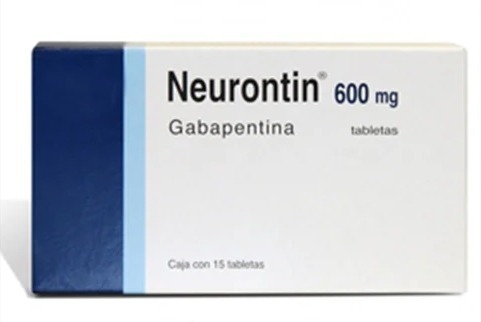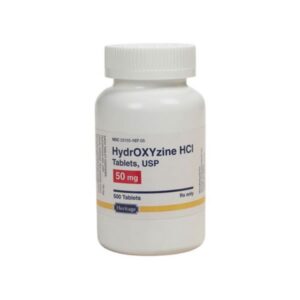Gabapentin, marketed under the brand name Neurontin, is a medication primarily prescribed for the management of various neurological conditions, including epilepsy, neuropathic pain, and certain psychiatric disorders. Gabapentin 600 mg represents a common dosage strength used in the treatment of these conditions, offering a balance between therapeutic efficacy and tolerability. This comprehensive guide aims to provide an in-depth exploration of Gabapentin 600 mg, covering its mechanism of action, therapeutic uses, recommended dosage, potential side effects, precautions, and important considerations for safe and effective use.
Understanding Gabapentin (Neurontin) 600 mg: Gabapentin belongs to a class of medications known as anticonvulsants or antiepileptic drugs. While its precise mechanism of action is not fully understood, Gabapentin is believed to exert its therapeutic effects by modulating calcium channels in the central nervous system, thereby reducing neuronal excitability and abnormal electrical activity. This action helps alleviate seizures in epilepsy and provides relief from neuropathic pain by interrupting abnormal pain signaling pathways. Gabapentin 600 mg provides a moderate dosage strength suitable for achieving therapeutic efficacy in various neurological conditions while minimizing the risk of adverse effects.
Uses and Indications: Gabapentin 600 mg is indicated for the treatment of several neurological and psychiatric conditions, including epilepsy, neuropathic pain (such as diabetic neuropathy and postherpetic neuralgia), and certain mood disorders (such as bipolar disorder and anxiety disorders). It is often prescribed as an adjunctive therapy in combination with other medications to enhance symptom control and improve overall treatment outcomes. Gabapentin’s ability to modulate neuronal excitability makes it a valuable option for managing conditions characterized by abnormal electrical activity or altered neurotransmitter function in the central nervous system.
Efficacy and Benefits: Clinical studies have demonstrated the efficacy of Gabapentin 600 mg in reducing seizure frequency in individuals with epilepsy and providing significant relief from neuropathic pain associated with various underlying conditions. The moderate dosage strength offers a balance between therapeutic efficacy and tolerability, allowing for adequate symptom control while minimizing the risk of adverse effects. Gabapentin typically begins to take effect within a few hours to days after initiation of therapy, with optimal therapeutic benefits observed with continued use over time. By providing relief from debilitating symptoms, Gabapentin enhances the quality of life for individuals affected by epilepsy, neuropathic pain, and other neurological disorders.
Dosage and Administration: The recommended dosage of Gabapentin 600 mg is determined based on the specific condition being treated, individual response, and tolerability. It is typically administered orally in divided doses throughout the day to maintain therapeutic blood levels and provide sustained symptom control. The dosage may be titrated gradually based on clinical response and tolerance, with regular monitoring by a healthcare professional to optimize therapeutic outcomes and minimize the risk of adverse effects. It is important to follow the prescribed dosage and administration instructions provided by the healthcare provider to achieve optimal treatment outcomes while reducing the risk of medication misuse or overuse.
Side Effects and Precautions: While Gabapentin is generally well-tolerated, it can cause certain side effects, especially at higher dosage strengths such as Gabapentin 600 mg. Common side effects include dizziness, drowsiness, fatigue, nausea, and peripheral edema. These effects are usually mild to moderate in intensity and transient, resolving spontaneously with continued use or dose adjustment. However, more serious adverse reactions such as respiratory depression, allergic reactions, and psychiatric symptoms are rare but require immediate medical attention. It is important to use Gabapentin with caution in individuals with certain pre-existing medical conditions such as renal impairment, respiratory depression, and history of substance abuse. Additionally, Gabapentin may interact with certain medications, including opioids, benzodiazepines, and alcohol, leading to potentially serious drug interactions and adverse effects.
Conclusion: Gabapentin 600 mg is a valuable medication for the management of various neurological conditions, providing significant relief from seizures, neuropathic pain, and psychiatric symptoms. With its moderate dosage strength and ability to modulate neuronal excitability, Gabapentin offers effective symptom control while minimizing the risk of adverse effects. However, it is important to use Gabapentin responsibly, under the guidance of a healthcare professional, and to be aware of potential side effects, precautions, and drug interactions. By understanding the therapeutic uses, dosage recommendations, and safety considerations associated with Gabapentin 600 mg, individuals with epilepsy, neuropathic pain, and other neurological disorders can make informed decisions regarding their treatment options and achieve better management of their symptoms.





Reviews
There are no reviews yet.